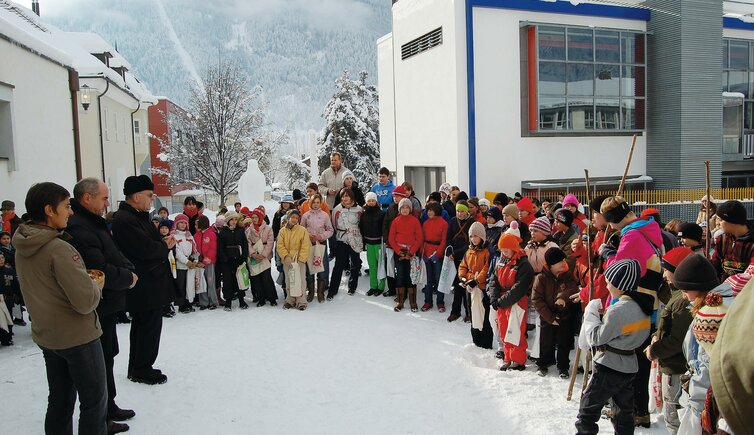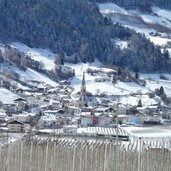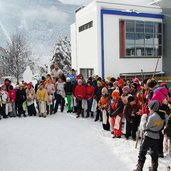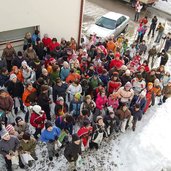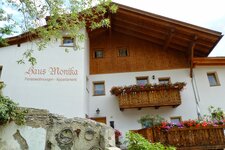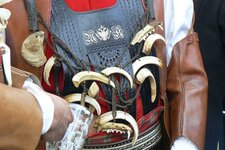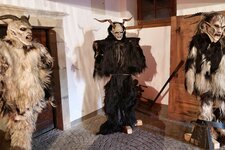In winter, around the period of St. Nicholas, New Year and Carnival, you can see children equipped with goat bells and bags
In the Val Venosta valley, especially in Lasa and its districts of Alliz, Oris and Cengles, the custom of the "Schellenrennen" is kept alive. After a blessing around noon, children or ministrants walk through the villages, equipped with goat bells and bags, asking for sweets. These bells are called "Schellen" in German, so the name "Schellenrennen" basically means "bells run" and refers to the way it is celebrated: The peal of the bells is used to ask for sweets and to thank for them. The three strongest boys carry the three biggest bells, while other children as "Robler" take care that everything runs smoothly. To the children are thrown nuts, mandarins and sweets, which everyone - except the "Roblers" - is allowed to pick up.
Since 2015, also girls have been able to take part in this ancient custom, which - like most in South Tyrol - was reserved exclusively for male participants. The origins of this custom are unknown and could go back to pagan rites. The ringing of the bells and the noise-making to drive away winter or bad spirits have been known in Tyrol since ancient times. In order to preserve the customs, it is also publicly supported, so on this day e.g. there is no school.
A similar custom is the "Winterausschellen" in the Val Monastero, a tributary valley of the Val Venosta. Every year on the "Chalandamarz" (chalanda = 1st day of the month, marz = March), young people equipped with smocks and cowbells walk through the village. Tricks are being played and the loud ringing of the bells can be heard until the early morning hours in order to drive away the winter spirits and to wake up the spring spirits under the snow.
